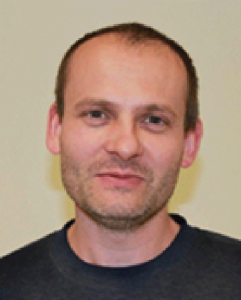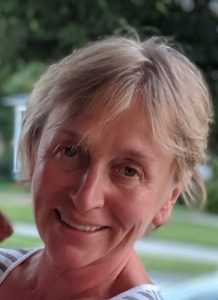 prof. Olga Pakhomowa (USA) is a Research Associate Professor at Frank Reidy Research Center for Bioelectrics, Old Dominion University (Norfolk, USA). The current research is centered on understanding and characterization of cell response to pulsed electric fields treatments, with particular emphasis on nanosecond-duration pulses and cell death mechanisms. The main topics of the research include escalation of cell sensitivity to pulsed electric field (PEF) for advancement of PEF-mediated tissue and tumor ablation; mechanisms of the PEF-triggered cell death, characterization of the cell death pathways and PEF-induced communication between the cells.
prof. Olga Pakhomowa (USA) is a Research Associate Professor at Frank Reidy Research Center for Bioelectrics, Old Dominion University (Norfolk, USA). The current research is centered on understanding and characterization of cell response to pulsed electric fields treatments, with particular emphasis on nanosecond-duration pulses and cell death mechanisms. The main topics of the research include escalation of cell sensitivity to pulsed electric field (PEF) for advancement of PEF-mediated tissue and tumor ablation; mechanisms of the PEF-triggered cell death, characterization of the cell death pathways and PEF-induced communication between the cells.
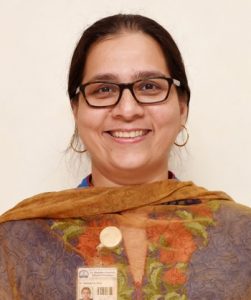 prof. Tabassum Khan (India) is a Professor at the Department of Pharmaceutical Chemistry and Quality Assurance, Mumbai University (India). She is a specialist experienced in academics (16 Years) and industry (4 Years). The main interest areas include natural product chemistry: bioactivity-guided fractionation of natural product extracts, isolation and characterization of phytoconstituents, standardization of herbal products using modern analytical techniques. She is also specialized in synthetic chemistry i.e. total synthesis of privileged structures from natural products and analogue synthesis, SAR and CADD in natural product templates and analytical method development and validation of pharmaceuticals (synthetic and herbal category).
prof. Tabassum Khan (India) is a Professor at the Department of Pharmaceutical Chemistry and Quality Assurance, Mumbai University (India). She is a specialist experienced in academics (16 Years) and industry (4 Years). The main interest areas include natural product chemistry: bioactivity-guided fractionation of natural product extracts, isolation and characterization of phytoconstituents, standardization of herbal products using modern analytical techniques. She is also specialized in synthetic chemistry i.e. total synthesis of privileged structures from natural products and analogue synthesis, SAR and CADD in natural product templates and analytical method development and validation of pharmaceuticals (synthetic and herbal category).
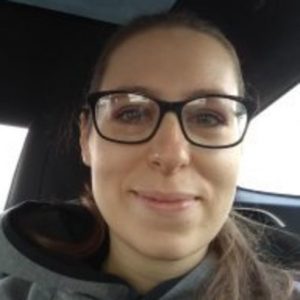 dr Joanna Tunikowska (Poland) is a veterinarian in the Department of Surgery at the Faculty of Veterinary Medicine of the University of Life Sciences in Wroclaw. Currently working on the use of CO2 laser and electrochemotherapy in small animal surgery. Privately, she helps animals both as a veterinarian and animal lover.
dr Joanna Tunikowska (Poland) is a veterinarian in the Department of Surgery at the Faculty of Veterinary Medicine of the University of Life Sciences in Wroclaw. Currently working on the use of CO2 laser and electrochemotherapy in small animal surgery. Privately, she helps animals both as a veterinarian and animal lover.
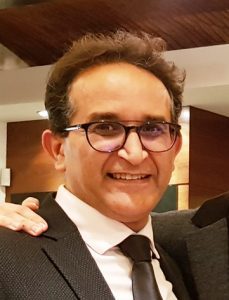 prof. Mounir Tarek (France) is a Senior Research Director at the CNRS-Université de Lorraine, recipient of a Ph.D. in Physics from the University of Paris in 1994. He joined the CNRS after a four-years tenure at the National Institute of Standards and Technology (Gaithersburg Maryland USA) following three years tenure at the University of Pennsylvania). His research focus and expertise lies in the study of cell membranes transport processes. It involves the use of computational chemistry methods to study membranes, proteins, ion channels and membrane transport proteins. Over the last few years, he studied many aspects of electroporation of cell membranes subject to high electric fields.
prof. Mounir Tarek (France) is a Senior Research Director at the CNRS-Université de Lorraine, recipient of a Ph.D. in Physics from the University of Paris in 1994. He joined the CNRS after a four-years tenure at the National Institute of Standards and Technology (Gaithersburg Maryland USA) following three years tenure at the University of Pennsylvania). His research focus and expertise lies in the study of cell membranes transport processes. It involves the use of computational chemistry methods to study membranes, proteins, ion channels and membrane transport proteins. Over the last few years, he studied many aspects of electroporation of cell membranes subject to high electric fields.
prof. Rene Kizek (Czech Republic) is a Professor Rene Kizek is currently a Professor at the Pharmaceutical Faculty (University of Veterinary and Pharmaceutical Sciences Brno) and head of the Laboratory of Molecular Nanotechnology and Nanomedicine. His main research interest is studying heavy metals such as cadmium, lead and zinc in the environment. Organisms produce many protective molecules including thiol compounds such as metallothioneins (e.g., in animals) or phytochelatins (e.g., in plants). These molecules may be used in bioremediation technology or in the biosensor construction. Professor Kizek also focuses on nanotechnology, especially the synthesis of nanoparticles (magnetic or carbon nanoparticles or quantum dots) by chemical and biological methods.
